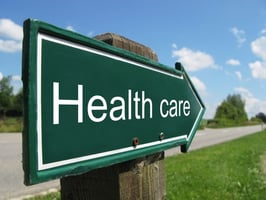Study Reports Prevalence of ED Visits Associated With Psychiatric Medications
 |
Researchers at the Centers for Disease Control and Prevention (CDC) and Johns Hopkins Bloomberg School of Public Health analyzed rates of (ED) visits by adults for adverse health consequences that were linked to use of psychiatric medications. Collecting data from 63 hospitals that participate in the National Electronic Injury Surveillance System—Cooperative Adverse Drug Event Surveillance, the researchers analyzed medical records of adults aged 19 and older who were treated at least once at an ED in the three years beginning January 2009 for an adverse event attributed to use of a psychiatric medication.
The results showed that psychiatric medication accounted for an estimated 89,094 annual ED visits for adverse events in the years studied—with about 1 in 5 of the visits resulting in hospital admission. Nearly 50 percent of ED visits related to psychiatric drugs involved adults aged 19 to 44, while 17 percent involved patients aged 65 and older. Adverse events related to antipsychotics and antidepressants were the leading medication-related causes of ED visits among young to middle-aged adults, whereas adverse events linked to use of sedative and anxiolytic medications were the leading cause of ED visits for older adults.
Overall, when the age factor was removed, the researchers found lithium salts and antipsychotics to be the leading contributors to ED visits related to psychiatric medication use. The most common adverse health consequences were movement disorders, such as dystonia and extrapyramidal disorders, due to antipsychotics.
"These results support [the 2013 APA] recommendations that antipsychotics should be prescribed with caution...to ensure that antipsychotics were clinically warranted, commented lead author Lee Hampton, M.D., M.Sc., a medical officer at the CDC, in a commentary on Medscape . Hampton and colleagues concluded that efforts should be implemented to reduce adverse events associated with psychiatric medications among adults of all ages, starting with highest priority given to the medications that this study found were linked with the highest rates of ED visits.
To read about APA's advisory for prescribing antipsychotics, see the Psychiatric News article, "APA Joins Campaign Urging Doctors, Patients to Choose ‘Wisely’." To see an interview with Hampton discussing the study's findings, click here.
(Image: cleanfotos/shutterstock.com)





